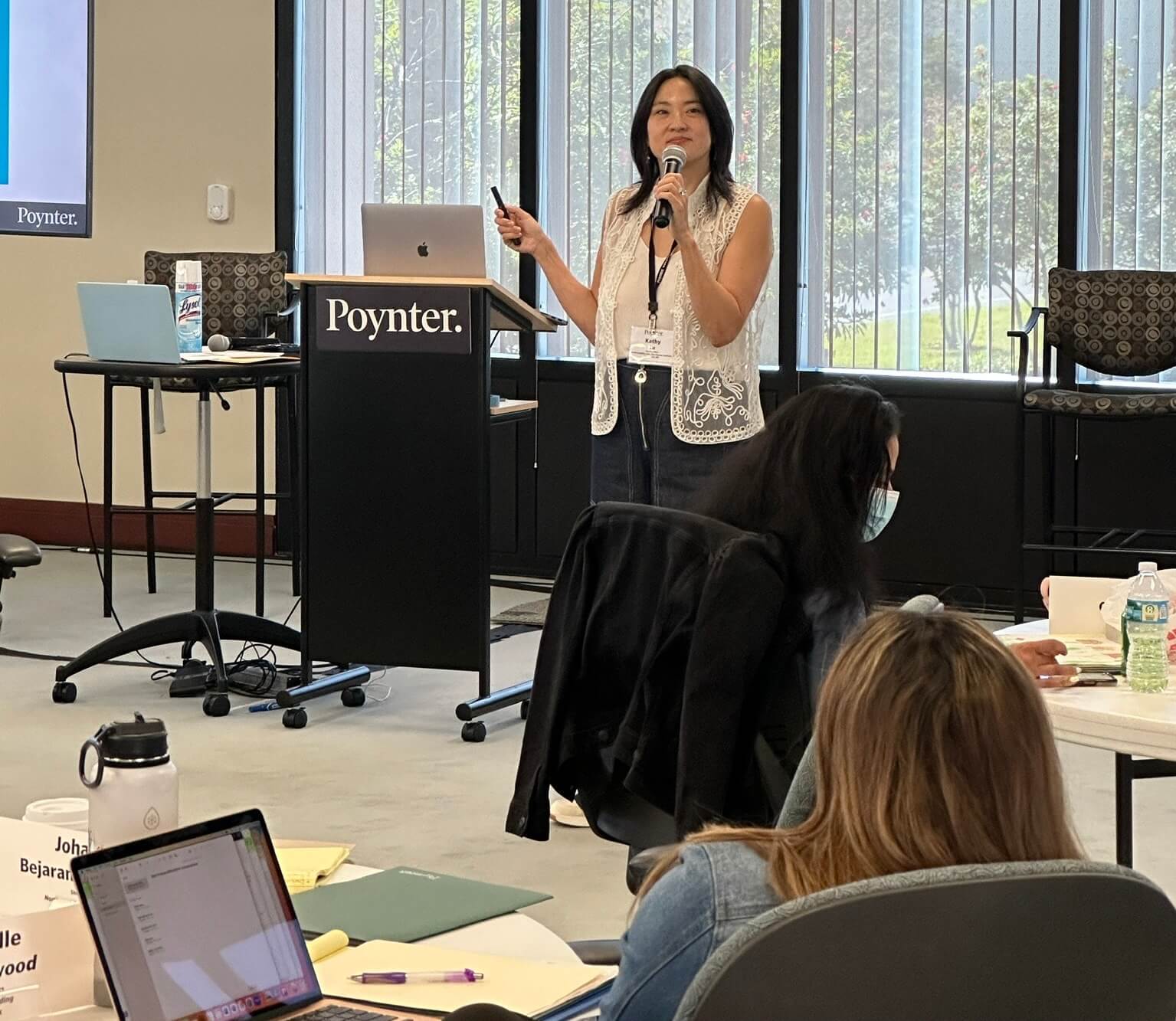By Roy Peter Clark (and friends)
At a Poynter workshop last summer, I met a high school journalist from Tampa named Chloe. She is always trying to improve in her craft. She talks about reading and writing with keen insight. Every conversation I have had with her makes me smarter.
She sent me an email yesterday with this request: “As features editor, and because our publication is student-run, I’m helping some of our newest writers get used to journalistic writing. I was wondering if you had any tips when it comes to training them. If you could tell only three things to a new writer, what would they be?”
What a useful inquiry. I couldn’t stop at three, so I offered her six:
1. Collect more stuff in your notebook than you think you need.
2. Starting with names — double check.
3. Put something interesting/important at the top.
4. Have a person speaking by the third paragraph.
5. Write from a little plan: beginning, middle, ending.
6. Write at least three drafts.
Here are a few more to make a baker’s dozen:
7. If you are on deadline, shoot for a draft and a half.
8. Think about your story while you are reporting, not just after.
9. Start writing a little earlier than you think you can. It will teach you what you know and what you still have to learn.
10. Don’t use everything in your notebook: select the most interesting and important stuff.
11. In the field, don’t just write down what people say; also write down what you see.
12. Arrive early for an assignment and stay late.
13. Politeness is a virtue — but so is persistence.
And, of course, as my Twitter follower Roxanne Kearns Dill reminded me, if you are working on a story and see a dog nearby, you are obligated as a dogged reporter to “get the name of the dog.”
RELATED TRAINING: The Writing Process: 10 Steps for Coaching Writers
I posted my original list on Twitter and, to my delight, received many other useful suggestions for new student reporters. Some — like “Follow the money,” — seem more appropriate for more experienced journalists. But most were on target, covering key areas of learning for new journalists such as being curious, taking notes, asking questions, checking things out and being polite but not being intimidated.
Here are some of my favorites, and my gratitude to my Twitter pals for suggesting them:
- Take notes AND carry a tape recorder.
- Write down your thoughts and feelings. Don’t trust your memory.
- Use your smartphone to take pictures.
- Get phone numbers and email addresses from sources.
- Read! For research, background, context.
- Ask your source to slow down while you catch up on your notes.
- Don’t be afraid of silence — let the source fill it.
- Keep your reader in mind.
- Last question in an interview: Is there anything I didn’t ask you about that I should know?
- Print out your final draft and read/edit it away from the computer.
- If you don’t understand what a source is saying, ask them to explain.
- Don’t start from the assumption that you know the story. Or the truth.
- The best interviews are conversations and the best quotes come from listening.
- Stay humble to the end. The moment you start thinking you know better, you lose the best tool you possess as a journalist — your curiosity.
- Interview a variety of people to get various voices heard.
- Don’t be intimidated. No one’s title is that impressive.
- Tell stories that are important to your classmates — especially if they have not be told before.
- Ask yourself: Is it accurate? Would I find it interesting enough to read it myself?
- Always carry an emergency kit that includes an extra notebook and a few pencils.
- Just because someone hasn’t done it before, doesn’t mean you can’t.
- Read your drafts aloud with a pencil in your hand.
- Write as you speak.
I had a doctorate in English literature BEFORE I wrote my first news story. I remember well my anxieties and concerns, and they lead me to a few final tips for brand new student reporters:
- You can stay out of trouble by not taking other writers’ work and making believe it is your own. And do not add anything to your story that never happened. If you do, you are in the world of fiction, not journalism.
- If you are afraid of interviewing authority figures or people you don’t know, gain some confidence by interviewing your friends. It’s good practice, a form of rehearsal. (But don’t quote them!)
- Quotes should be true to what the speaker says, but for politeness and clarity it is not necessary to quote the ‘ums’ and the ‘uhs,’ or to use dialect.That can be distracting and disrespectful. If you have a question, consult your editor or teacher.
- At some point, with your teacher’s permission, you can share your story with a source for feedback on accuracy and emphasis.
- You cannot write as fast as people talk. It is OK to write down key words and phrases in your notebook and fill in the rest from memory to quote the source, checking back with the source if there is any confusion.
- Remember that you are learning a craft, but it is a craft with a purpose. At your best you will become a champion of practical democracy and freedom of expression.
- Any time you read something that you find to be very effective, show it to a friend and start a conversation on what made the work successful and how the writer created it.







